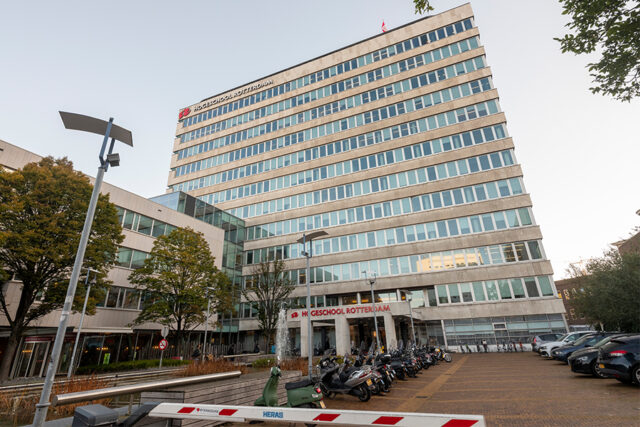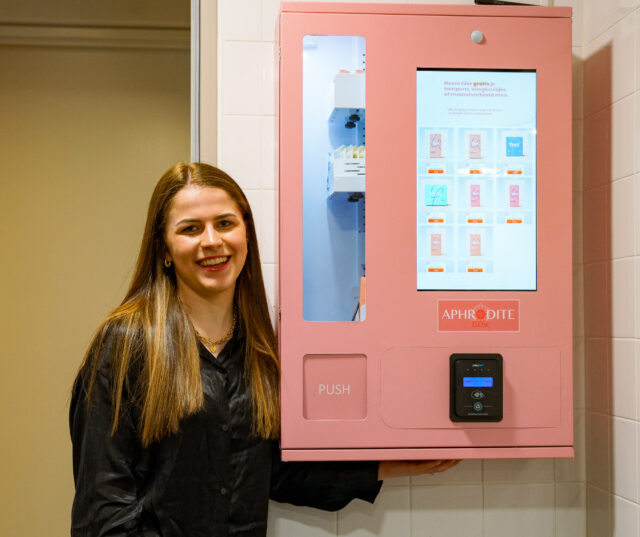HR to introduce paid parking
Gepubliceerd: 14 March 2017 • Leestijd: 1 minuten en 24 seconden • English Dit artikel is meer dan een jaar oud.The transport policy of the Rotterdam University of Applied Sciences (Hogeschool Rotterdam – HR) will be reconsidered. Parking will have to be paid for. However, bicycle facilities will be expanded.

This week, project leader Peter Bik presented the outline of the plans made by the Executive Board to the PGMR, the participation council’s staff delegation. HR staff members will have to start paying for the 500 parking spaces available from 1 January 2018 at the earliest. The parking proceeds will be used for his/her department or school. The fees have yet to be established, but will be in line with the ones used by the Erasmus University and Erasmus MC.
All staff members will be paid a travel allowance (with a maximum of 25 kilometres), even if you live within a 5-kilometre radius from the HR (approximately 800 people).
The current commuting allowance was introduced in 2006, when Rotterdam was still divided into zones. This means this scheme is now obsolete and not quite fair to begin with. If you now live less than 5 kilometres from the HR, you do not receive a travel allowance, while others can – unintentionally – receive too much, because the scheme is based on zones instead of postcodes.
Official travel will be paid for based on public transport, unless agreed otherwise with the superior. Money will be invested in an automatic parking system, which will either be based on passes or number plate recognition. Bicycle facilities will be expanded at the same time: bicycle parking stations, bicycle lockers and maybe even showers on every location for staff members who have to travel far. The possibilities for discounted RET or NS public transport season tickets are investigated.
We hope and expect that staff members will travel without cars whenever possible. The new transport policy has to contribute to a reduction of CO2 emissions and staff members’ vitality.
The entire operation is supposed to be budget neutral. The HR now spends 2.9 million on commuting allowances a year. According to Executive Board member Jan Roelof that amount should not increase.
The PGMR response to the plans of the Executive Board was positive. Details will be discussed at a later stage. The decision-making process is expected to take place in May.
Text: Dorine van Namen









What about motor bikes?